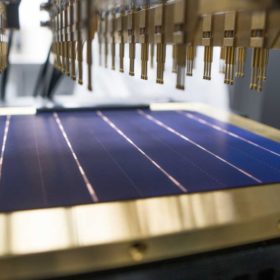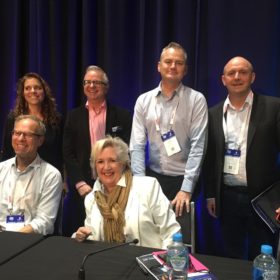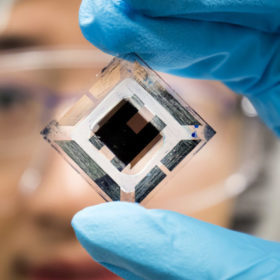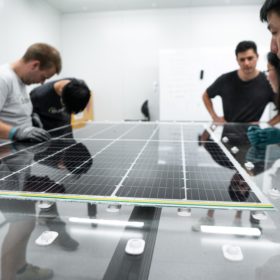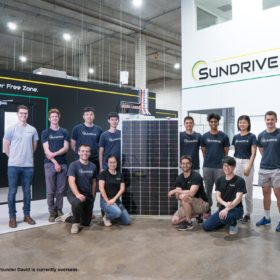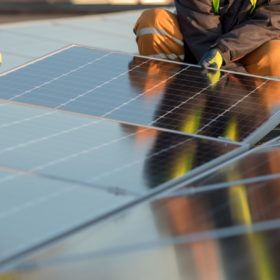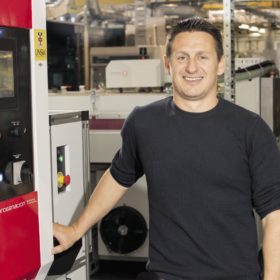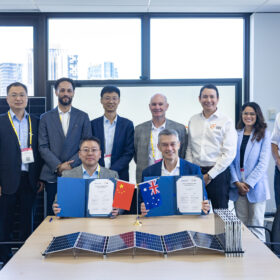Trailblazer tipped to accelerate Australia’s clean energy transition
The University of New South Wales and the University of Newcastle will join forces to develop and commercialise “world-leading” technology in solar, renewable hydrogen, storage and green metals after securing $50 million in Federal Government funding through the Trailblazer program.
It’s 2030 and Australia’s energy landscape looks like…
As part of the Smart Energy Conference held in Sydney last week, the Smart Energy Council’s Scott Hamilton ran a session on Australia’s hypothetical energy landscape in 2030. This is how panelists Simon Holmes á Court, Jane Caro, Richard Denniss, Karrina Nolan and Professor Iain MacGill think we’ll be living at the decade’s close.
UNSW Exclusive: unlocking the potential of singlet fission for future PV devices
Materials which undergo singlet fission provide an exciting and different pathway for exploiting the full solar spectrum, researchers at the prestigious University of New South Wales explain.
Huge aluminium demand expected in solar industry, concerns arise on emissions
Researchers from the University of New South Wales (UNSW) predict that growth to 60TW of photovoltaics needed to rapidly reduce emissions to ‘net zero’ and limit global warming to <2 °C could require up to 486 Mt of aluminium by 2050. A key concern for this large aluminium demand is its large global warming potential.
‘Ultra low-cost solar’ gets a $40 million R&D boost from ARENA
The Australian Renewable Energy Agency has announced $40 million in research and development funding is up for grabs across two streams. Stream 1 consists of cells and modules, and Stream 2 is focused on balance of system along with operations and maintenance. It is hoped the additional funding will spur Australia’s pioneering solar research to push for the federal government’s “ultra low-cost solar” target of $15/MWh.
Promising Sydney startup SunDrive fabricates its first full-sized panel
World beating Sydney-based startup SunDrive has given itself an early Christmas present in the form of the fabrication of its first full-sized panel. This panel marks the most recent milestone on the road to commercialisation for SunDrive, which set a new world record for commercial-sized silicon solar cell efficiency in September.
Installers to play key role in UNSW solar module recycling strategy
Solar installers are to play a key role in a unique ‘reverse logistics’ model which researchers from the University of New South Wales believe can help deliver an economically viable national recycling strategy as the number of decommissioned solar PV modules coming off Australian rooftops continues to grow.
Saturday read: Cloud looms over PV’s silver lining
Should heterojunction solar technologies be temporarily shelved? Could copper plating replace screen-printed silver conductive surfaces in cells? Why are tandem cells a likely successor to PERC? Brett Hallam recently sat down with Natalie Filatoff in Sydney to explain the findings of a new study by the University of New South Wales (UNSW) that sought to answer these controversial questions.
What is COP26, and why is it important?
Here’s the rundown of everything you need to know about the upcoming Glasgow Climate Summit.
Are solar and wind the cheapest forms of energy? And other FAQs about renewables
Everything you ever wanted to know about the way we will ultimately derive all our power from renewable sources, and how quickly it will be achieved.
